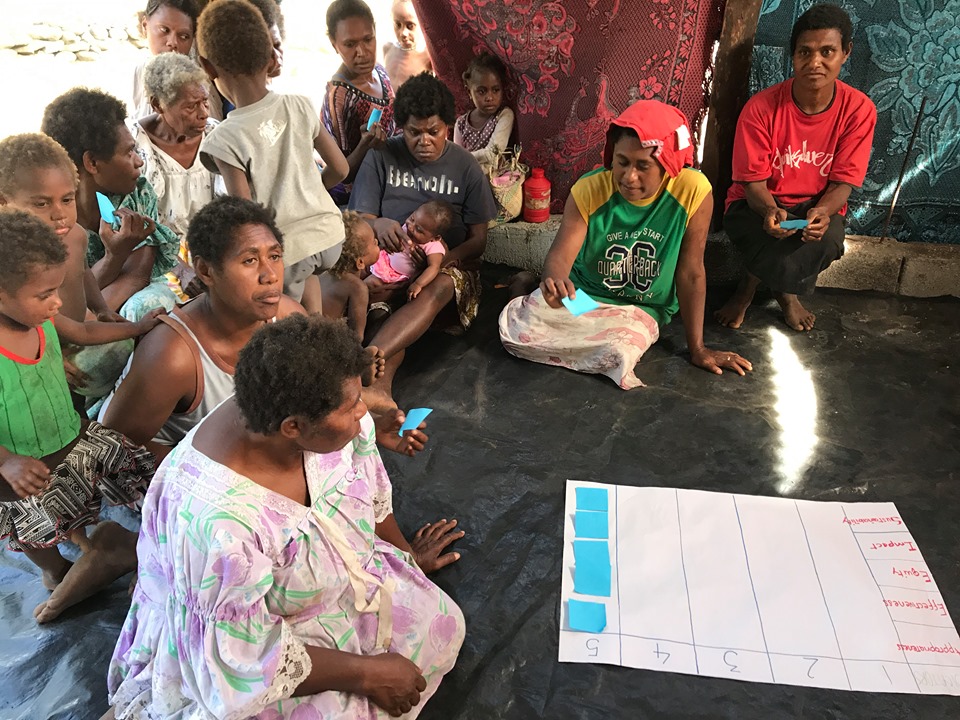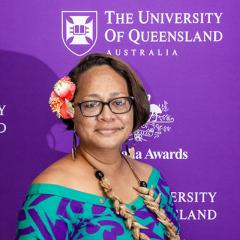UQ researchers, in collaboration with local NGOs and other universities, are engaging with communities in the Pacific to evaluate community-based adaptation initiatives and optimise future efforts.
Communities throughout the Pacific are facing numerous impacts of climate change: sea level rise, increasing temperatures, increasing intensity of tropical storms and cyclones, ocean acidification, changes in rainfall patterns, and changes in climate variability threaten these small, remote island nations.
The impacts of these climatic changes pose additional burdens on development for many countries as communities contend with declining food and water security, loss of agricultural lands, human health implications, threats to key industries such as tourism, economic losses, and damage to coastal infrastructure and human settlements.
Adaptation to climate change is critical
Dr Karen McNamara from the School of Earth and Environmental Sciences said all emissions projections show that these climatic changes will only increase in the next century, and the impact on communities is becoming increasingly concerning.
In order to cope with and manage risks, adaptation, the adjustments in natural or human systems to moderate the adverse effects of climate change or exploit beneficial opportunities is critical.
Donor organisations that fund climate change projects are spending billions of dollars per year. But with their largely underwhelming adaptation successes, aid is being redirected towards new approaches, which focus on community-scale adaptation, and interconnections with socio-economic development. These interventions are rarely documented in the Pacific, and their effectiveness is rarely monitored.
Evaluating interventions for ‘best practice’
“Knowing what leads to success and failure and what ‘best practice’ looks like is largely absent in the Pacific, which is a serious shortfall for future planning efforts,” Dr McNamara said.
“Ongoing improvements to the effectiveness of community-based adaptation can only be assured through independent assessments that inform necessary improvements.”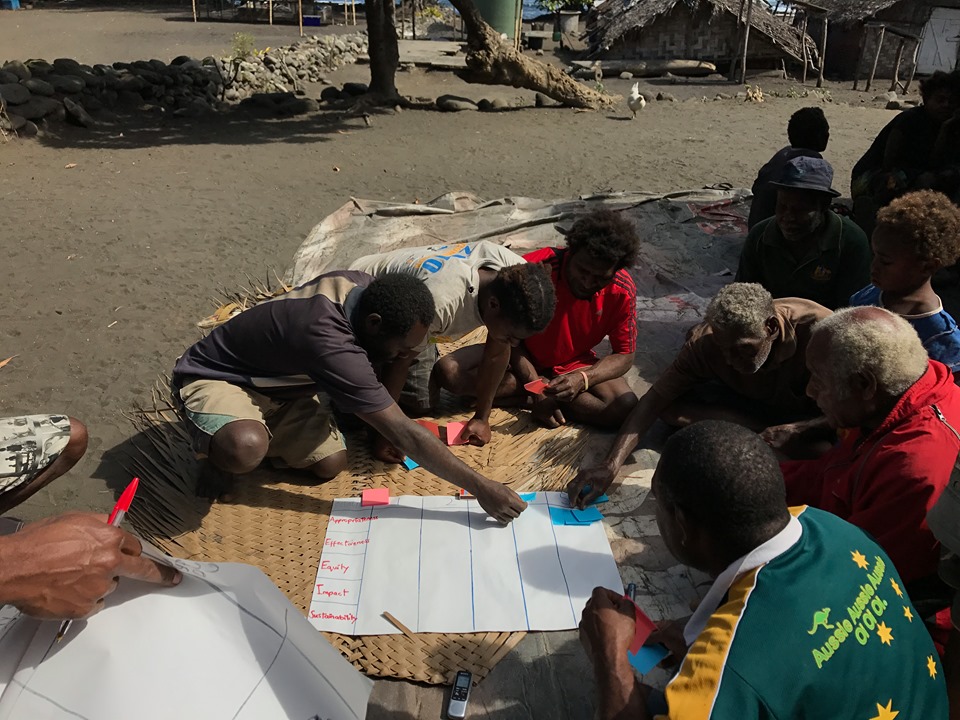
Dr McNamara’s project fills this gap by evaluating the effectiveness of a series of community-based adaptation initiatives in the Pacific. The project aims to identify ways of optimising these initiatives in the future. Ultimately, this project will have significant positive consequences for long-term adaptation planning in the region. It will ensure that donor assistance is deployed in ways that create the most value for communities, and ensure that livelihoods and resources are sustained.
The research team visited 20 communities in Fiji, Kiribati, Vanuatu and the Federated States of Micronesia between 2017 and 2019. Through a series of focus groups and interviews, researchers collected local perspectives on the effectiveness, appropriateness, impact, sustainability and equity of 32 community-based adaptation initiatives.
The focus group guide and interview schedules were developed in close consultation with partner organisations. The chosen indicators allowed researchers to determine whether and how these community-based adaptation projects have been reducing underlying vulnerability to climate change and, through this, supporting development progress.
“The focus on extensive qualitative data ensured that local voices and people’s multiple perceptions, values and attitudes were bought to the fore,” Dr McNamara said.
Local language and local contexts are key to success
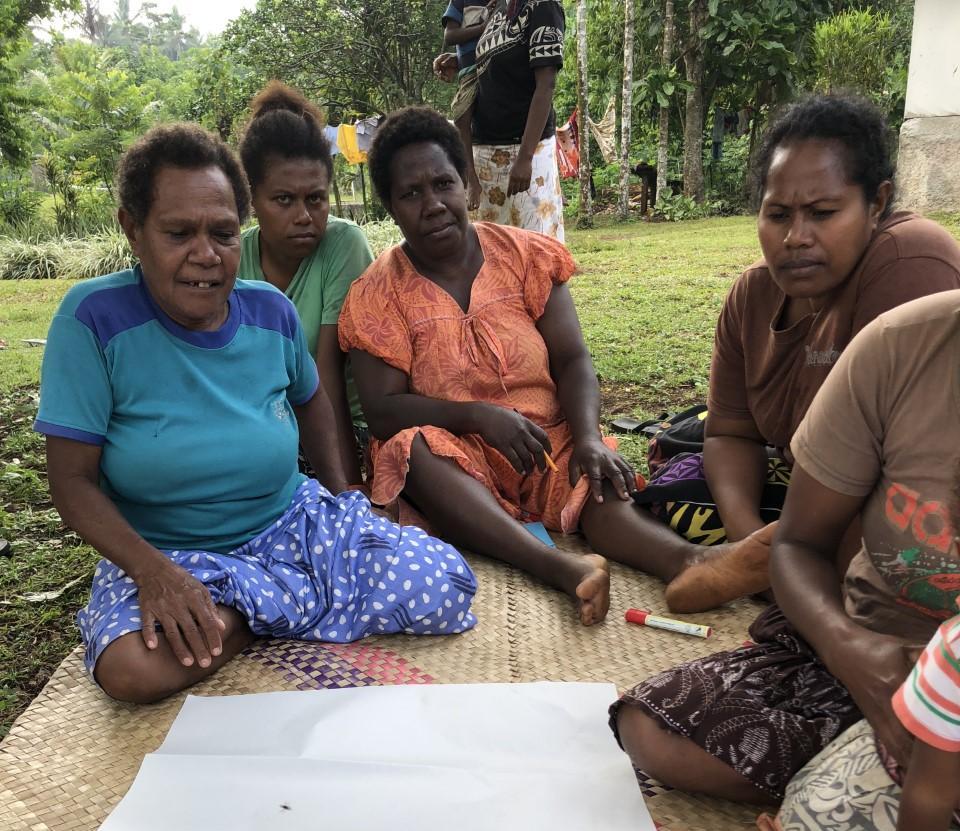 For the communities visited, key climate concerns included cyclones, climate and rainfall variability including heavy and intense rain, drought, tidal and storm surges, coastline and shoreline erosion as well as sea-level rise. These threats affect people’s wellbeing and standard of living, destroying housing and livelihoods and impacting food security, which then impacts diet and nutrition, reducing water security and causing loss of land.
For the communities visited, key climate concerns included cyclones, climate and rainfall variability including heavy and intense rain, drought, tidal and storm surges, coastline and shoreline erosion as well as sea-level rise. These threats affect people’s wellbeing and standard of living, destroying housing and livelihoods and impacting food security, which then impacts diet and nutrition, reducing water security and causing loss of land.
Key community-based adaptation responses that researchers analysed included those relating to food and water security and quality,
communities gaining a better understanding of climate change and feeling more able to cope.
Dr McNamara said initiatives that were delivered in local languages – and were in alignment with community priorities, lifestyles as well as levels of skills or knowledge – were most appropriate for local contexts.
Room for improvement in equity and sustainability
Researchers found that the level of equity was highly variable across initiatives – a clear area for improvement.
“Although some communities perceived initiatives to be equitable and beneficial for women’s empowerment, those with lower levels of education, the elderly, and members of religious minorities, for example, remain excluded from certain initiatives,” Dr McNamara said.
Another key area for improvement, according to this study, is the sustainability of initiatives. Negative perceptions of program sustainability were common as a result of the short-term nature of many activities, their inappropriateness to local context, insufficient outputs, or lack of ongoing support from implementing organisations.
“There is potential for ‘maladaptation’, by giving these communities a false sense of security or exposing them to new risks, which needs to be avoided.” Dr McNamara said.
“Despite these areas of improvement, the community-based approach – like other development-focused adaptation programs – ensures that regardless of the future climate change scenario, there are some positive, development-related benefits, such as enhanced skills and knowledge, improved infrastructure, empowerment, community cooperation and self-esteem or short-term benefits in income and health.”
Moving forward
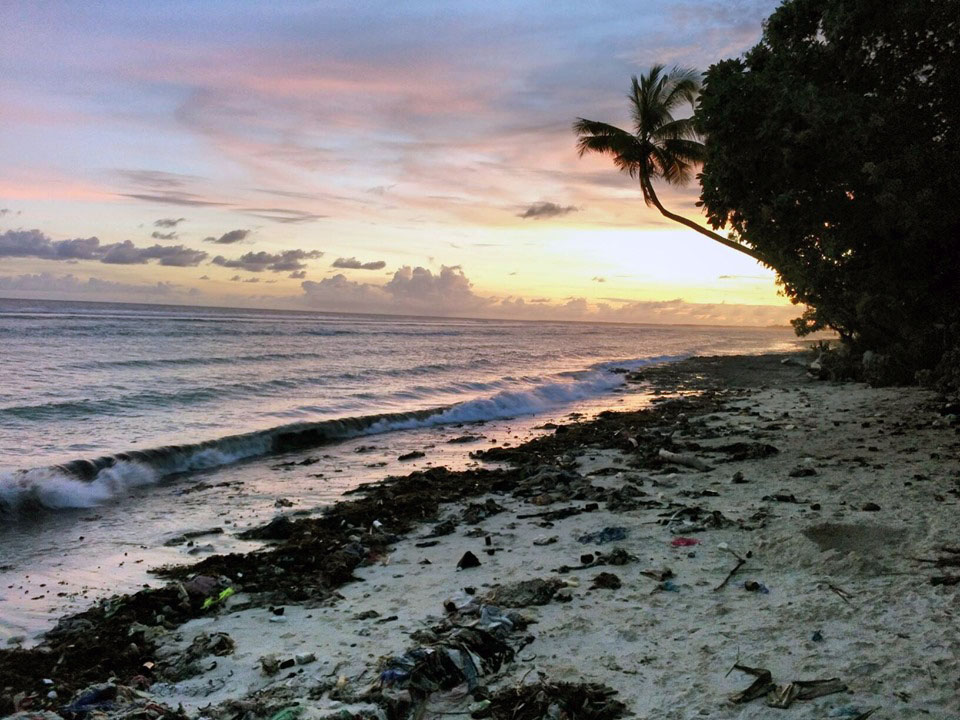
The research team has used the data they collected to develop recommendations for the optimisation of future community-based adaptation in the Pacific.
Key areas of consideration include evolving how a ‘community’ is defined and situating adaptation at different scales, the importance of thoroughly understanding local context and community dynamics, integrating equitable participatory processes and local knowledge, mainstreaming gender considerations as well as ensuring longer-term and sustainable interventions.
Project findings and recommendations have been published in papers focused on specific adaptation strategies or contexts. A regional summary paper will be published in 2020. Sharing these best practices are crucial for the effective use of future resources by NGOs, donors and governments.
Research funding
Australian Research Council (ARC) Linkage grant (LP160100941)
Partnerships
This project collaborated with researchers at UQ
- Senior Lecturer Dr Karen McNamara
- Professor James Watson
- Honours students Rachel Clissold, Tahlia Clarke and Benjamin Priebbenow
- PhD student Annah Piggott-McKellar
Other universities
- The University of the Sunshine Coast (Professor Patrick Nunn and Roselyn Kumar)
- Griffith University (Dr Ross Westoby)
NGOs
- CARE International
- Caritas Australia
- Conservation Society of Pohnpei
- Pacific Conference of Churches
- Red Cross
- Red Crescent Climate Centre
- The Foundation of the Peoples of the South Pacific International
- Wildlife Conservation Society and World Wide Fund for Nature (Pacific)

